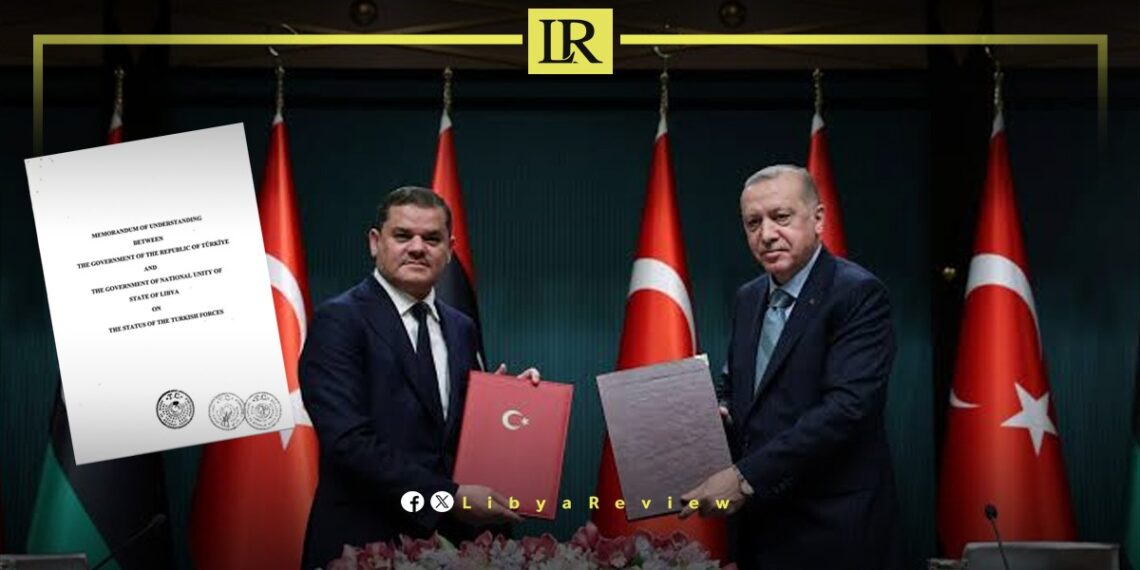On Saturday, Turkish President Recep Tayyip Erdogan submitted a memorandum of understanding (MoU) to the Turkish Parliament that grants Turkish forces extensive operational freedom and legal protections while stationed in Libya.
This MoU, signed on March 1 in Antalya and presented to parliament on August 12, deepens the military cooperation between Turkey and the Libyan government.
Building on earlier agreements, including the 2012 Military Training Cooperation Memorandum and the 2019 Security and Military Cooperation Memorandum, the MoU aims to bolster Libya’s defense capabilities. Turkey will lead efforts to restructure and train Libya’s armed forces and security units, responding to a direct request from the government led by Abdulhamid Dbaiba.
The MoU includes several significant provisions:
Legal Immunity: Turkish military personnel in Libya will have broad legal immunity under Article 11, meaning any crimes committed during official duties will be governed solely by Turkish law. This effectively shields them from Libyan legal jurisdiction, reinforcing Turkey’s control over its forces abroad.
Operational Freedom: Article 12 grants Turkish forces the right to carry personal and military weapons and wear their uniforms while on duty, reflecting significant autonomy in their operations. Additionally, Article 7 gives Turkish forces unrestricted access to Libyan airspace, territorial waters, and land, exempting them from local seizures or charges.
Logistical and Financial Support: The MoU allows Turkish forces to establish and manage their communication systems, and set up postal offices, bank branches, and recreational facilities within their areas, as detailed in Article 9 and Article 16. Libya has committed to providing extensive logistical support, covering essential services like electricity, water, and internet at no cost. Furthermore, the MoU includes financial exemptions, such as tax and duty-free imports and exports related to Turkish military activities in Libya, as per Article 14.
The MoU is effective for three years, with an automatic one-year extension unless either party opts to terminate it. This ensures Turkey’s continued military presence in Libya, a key strategic priority for Ankara, especially given Libya’s valuable oil and gas resources.
Turkey’s military involvement in Libya has been controversial. The UN Security Council’s 2024 report accused Turkey of violating sanctions by providing military equipment and training to various factions in Libya. Despite these criticisms, Erdogan has emphasized the strategic importance of Turkey’s presence in Libya, both for national security and energy resource exploration.


